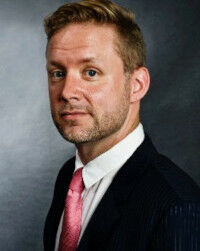Bribery hits 85% for UK managers operating internationally
Results from the 12th year of investigation
New research conducted by Professor Andrew Kakabadse indicates that over 85% of UK managers may be using bribery on a regular basis when conducting business in culturally-different environments.
The ongoing investigation by Professor Kakabadse, now in its 12th year, is based on detailed conversations with over 900 business leaders, and also reveals that 4 in 5 board level executives admit to being aware of some corruption.
As Professor of Governance and Leadership at Henley Business School, Andrew explains that: ‘This project began back in 2004 as an exercise to help coach and support high-level managers and directors who were struggling with some of the more challenging aspects of their jobs.
‘However, it soon became evident that everyday fraud, bribery and corruption were major obstacles and, if they didn’t pay-up to achieve their company’s aims, they risked being at a competitive disadvantage.’
The research team’s work covered managers from Russia, Ireland, China, Georgia, Germany, Finland, Belgium, Sweden, Australia, Pakistan, India, South Africa, Nigeria and Saudi Arabia.
‘It became clear that operating in countries such as Russia, the Middle East (except Oman) and most states in Eastern Europe, Africa and South Africa, bribery and corruption are the norm and are so endemic that it may be impossible to trade without making some illicit payments.
And he added: ‘These practises are typically costing businesses up to 5% of their annual revenue. So scrupulous managers operating in these countries feel that they have no choice but to pull out of the market in question.
‘No-one – including most of the population in any particular nation or state – approves of bribery, many concentrate on the so-called ‘corrupt manager’, while bribery most likely a consequence of inequality and dishonest government.
‘So many countries in the world are now deeply corrupt and it is almost impossible to do business without accepting local practices. The alternative, in most cases, is to conduct no business at all.
‘Through our research, we’ve shown that leadership decisions and morality are proving more powerful in practice than any governance or regulatory frameworks. In spite of the risks, the only way to address bribery is to recognise and expose it.
‘So what is the answer? A more focused partnership between government and business can start changing these deeply undesirable practices which destroy public trust in society. But of course, this relies on there being the moral will on both sides first. Unfortunately, this situation has become so serious that I fear it is way beyond the capability of any individual manager or even organisation to resolve.’
Find out more about the Board Directors’ Programme here: https://henley-germany.com/entries/629-boardroom-skills


